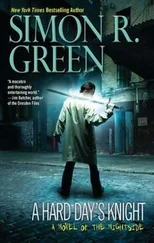Last night they sat up late chatting and she felt, for the first time in ages, that she was actually present. She was shocked when he told her the charity he worked for was about to come in for a grilling by the Parliamentary Treasury Select Committee. They were suspicious of the way government aid had been channelled through some of the charity’s projects.
“Is it dodgy?” she asked.
“No, no, just incompetent,” he said.
“Will you have to appear?” He shook his head.
“No, but in some ways it would be easier if I did. I just have to make sure none of the directors look like criminals rather than incompetent, well-meaning buffoons.”
“They’re lucky to have you,” she said and took his hand.
When they’d met, Robert had been a lawyer working for the Home Office. He was nearly thirty and she was twenty-two, but he was shy and it had made him seem younger than he was. Catherine was working for a newspaper, her first job. She was ambitious, so was he. They were both determined to get ahead and both of them were doing well. She remembers how surprised she’d been by his openness — he was so unguarded that it had made her feel protective towards him. The first time they’d met he told her he had “political ambitions.” Those were the words he’d used — a little coy, apologetic. She’d encouraged him to talk. It was the first of many “off-the-record” chats they had in a pub in Stoke Newington, neutral territory, where no one from either of their workplaces would be likely to come. Robert had been a member of the Labour Party since he was a student, so had she, but she’d let her membership lapse, Robert never had. He’d hoped to be selected as a parliamentary candidate — he would have been one of the youngest ever. It had never happened but she knew it was a desire he still nursed. They talked about it last night. He’d smiled, pleased that she’d brought it up, but he’d shaken his head.
“Nah, not now,” he said.
“I’d support you, you know, if that’s what you want.” It was a relief to think about someone other than herself. She sees it as a sign of her recovery and sits up, leaning back against the pillows.
It has been nearly a week since she sent the review and her instincts tell her it was the right thing to do. Stephen Brigstocke needed her acknowledgement. Now he knows that she recognises what he has been through. It has helped her too, she thinks. Perhaps that’s also why she is sleeping better. Writing those words forced her to think about his pain, not just hers. She cannot accept responsibility for it, but she can begin to understand why it has driven him to such an act of studied hatred. Yes, it has been good for her to think about that. Perhaps some balance has been restored for both of them in different ways.
She gets out of bed and pulls up the blind. It is glorious out there. She doesn’t want to go to work — she’ll call and tell them she’s working from home. She goes downstairs and makes tea then sits at the table with her laptop. She opens the page for The Perfect Stranger . Her review is still up there but nothing else has been added. An image of the book’s cover hovers in the corner of the screen, producing a throb of anger in her gut at the memory of its invasion. She exits the page. She will never look at it again.
It’s morning. I have been up all night. I don’t feel like breakfast. It is 10 A.M. according to my laptop and I am stiff from sitting in my chair so long. I need to move. I suppose I have become a little “stir crazy.” Too much time in front of a screen. Not something that usually afflicts someone of my age. Three paces to the window and I open the curtains. It is a stunning day. I had no idea. It leaves me blinking, as if I have run out in front of a car in the dead of night. It is the right kind of day to leave the house.
I have had duplicates made of the photographs, sending off the same negatives Nancy had sent off all those years ago. I half-expected a nasty note to come back from the lab, but it didn’t, just a fresh set of glossy prints. I slip on my lightweight summer jacket, then pop the envelope with the prints into the pocket. Yes, this is the right kind of day to leave the house.
Whenever I step into one of London’s more beautiful squares, I regret that I haven’t made an effort to do it more often. It is so invigorating. And Berkeley Square is a gem. There’s nothing hidden about it, it is well aware of its value and shows it off shamelessly. This is where to come if you are in the market for a Rolls-Royce. Which of course I am not and neither, by the look of them, are the fellows sharing the square with me this lunchtime. I close my eyes and raise my face to the sun and for the briefest of moments feel glad to be alive. I am still here, alive and ready to kick. But first I finish my sandwich, enjoying being part of this alfresco lunching club. I feel a comradely spirit between myself and the other diners, a few of us on benches, others lying on the grass or sitting on jackets. None of us knowing one another, but relaxed nevertheless in one another’s company, privileged to be sharing this luscious green space along with the ancient plane trees, the only living things older than I, in this London square. I scrunch up the paper from my sandwich and drop it into a bin, appreciating its presence, appreciating the security that it is still there and hasn’t been removed for fear of a bomb being left in it. This is a safe place. As I cross the square I take the envelope from my pocket, checking the address again: number 54 Berkeley Square.
The front of number 54 has been partially torn out and replaced with glass, oversize slabs of glass, as if the building’s mouth has been forced open and these glinting tombstones shoved in to prevent it from ever closing again. A building permanently trying not to gag. It’s a humiliating expression for this once noble facade. I walk through its gaping orifice and present myself to a young woman behind the reception desk and hand her the envelope with a smile.
Catherine decides to spend the day in domestic bliss. She texts Robert and tells him she’s not going to work and asks how his day is going. “ Well ,” he says, “ back by 7 .” She sends him three kisses back. Tonight she will make a decent supper. They will have a bottle of crisp white wine; they will have food flavoured with fresh herbs and they will have each other. She still enjoys Robert’s company more than anyone else’s; there is no one she would rather spend an evening with, no one whose opinion she respects more than his. She thinks back to the night ten days ago when she almost told him everything. Thank God she hadn’t. Robert thinks he is the strong one but he isn’t really and marriage is delicate, not just theirs but all marriages. There is a balance to maintain, and she thinks she has succeeded in keeping theirs on course.
Robert hates any kind of confrontation. She has hardly ever seen him angry, even with Nicholas, even when he was at his most challenging. It was always Catherine who raised her voice, never Robert. He was always the one who smoothed things over and although at times this upset her, made her feel like the cuckoo in the nest, she can see why he did it. If Nick couldn’t or wouldn’t talk to her, he always knew he could talk to his father.
Robert had grown up an only child between warring parents and become expert in mediation. It hurt her to think that she and Nicholas needed a mediator, but at times they did. Her fault, she admits. She hadn’t been able to reach him in the way she wanted to. He seemed to misread her voice, her tone, her facial expressions. It would take nothing for him to become angry with her and after a while she became self-conscious with him. Nothing felt natural. It hadn’t always been like that, but certainly from adolescence onwards. She has never doubted her love for Nicholas, but the bond they’d had seems to have been eroded. Perhaps if she and Robert had had another child, things would have been different.
Читать дальше












